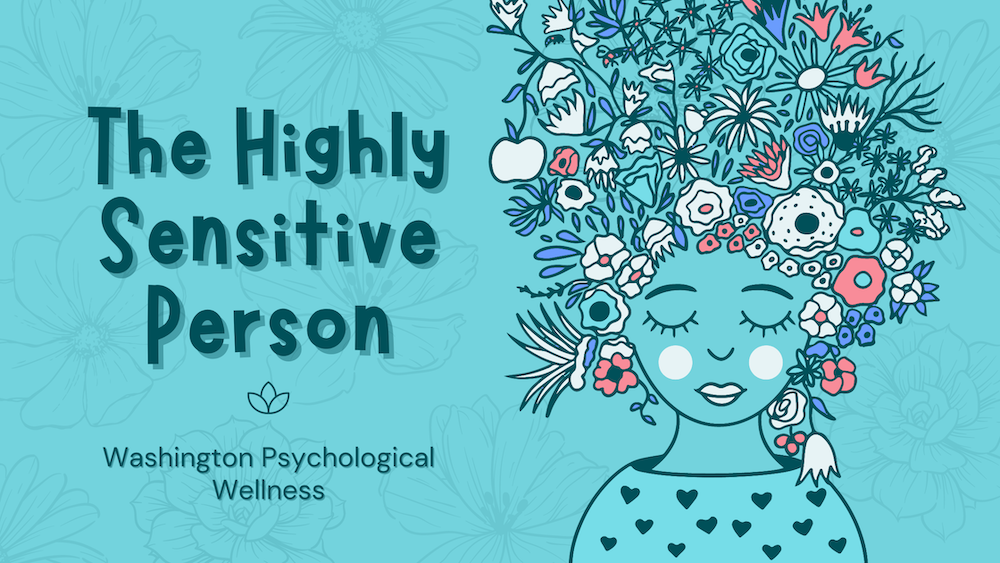What is a Highly Sensitive Person (HSP)?
Those who are often overly emotional or easily overwhelmed may be a highly sensitive person (HSP). HSP is not a disorder but rather a personality trait associated with a more sensitive central nervous system that results in increased responsiveness to external stimuli.
Individuals categorized as highly sensitive make up about 15-20% of the population and have physiological attributes that make them more sensitive to their environment than others. Being an HSP can result in overwhelming feelings, overstimulation, and overthinking, most notably in situations with many people, loud noises, or stressful demands.
What Causes a Highly Sensitive Person?
Sensory processing sensitivity is a personality trait that results from an increased sensitivity of the central nervous system and is characteristic of HSP. It leads to deeper cognitive processing of physical, social, and emotional stimuli.
Because HSP results from physiological traits in the central nervous system and sensory processing sensitivity (SPS), it is not something that develops as a result of life experiences. Instead, the HSP is born more sensitive and attuned to their environments than others.
What Is the Impact of Being a Highly Sensitive Person?
A sensitive nervous system can cause you to perceive any stimulus as disorienting, overwhelming, and stressful. The HSP often feels others do not understand these struggles, leading to increased self-criticism, isolation, and shame.
In moments of extreme tension, the highly sensitive person may also ultimately shut down or even freeze. The HSP may also feel easily overwhelmed or overstimulated, often resulting from large crowds, loud noises, and other stressful stimuli.
The following symptoms are also common for the HSP:
- Feeling shame about being told that you are overly emotional or sensitive
- Over-analyzing and overthinking situations or relationships
- Feeling alone or misunderstood
- Internalizing the feelings and experiences of others
- Experiencing anxiety
- Being easily and strongly impacted by your environment and lacking boundaries
- Struggling with processing negative feelings towards others, such as anger or frustration
Do I need Therapy for Overwhelming Emotions?
There is no formal diagnostic test to determine if you are a highly sensitive person as it is a personality trait rather than a mental illness. Common challenges of the HSP include:
- Feeling stressed, overwhelmed, or burnt-out
- Experiencing shyness or difficulty in large crowds
- Having intense emotions
- Problem with change or transitions
- Increased sensitivity to the environment
- Feeling judged or misunderstood
- Having perfectionistic tendencies
While not every experience is the same, if you are a highly sensitive person experiencing overwhelming emotions that interfere with your daily social, emotional, occupational, or romantic functioning, therapy can help.
How Can Therapy Help a Highly Sensitive Person?
There is nothing wrong with being a highly sensitive person, and here at Washington Psychological Wellness, we believe that being an HSP is something to celebrate rather than “fix.”
With the help of your therapist, you will gain insight into the core tenants of your personality, learn to embrace your sensitivity, and develop the tools and strategies needed to live each day authentically and in accordance with your goals and values.
What Are My Next Steps?
If you or someone you love is an HSP experiencing overwhelming emotions that interfere with daily life, Washington Psychological Wellness is here to help.
Feel free to contact us for a complimentary 15-minute initial consultation to see how therapy can help you. For more mental health resources on the highly sensitive person, check out our Books We Love section by clicking here.
Related Content
10 Tips To Reduce Guilt About Saying No

